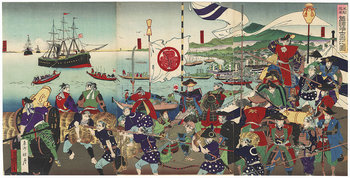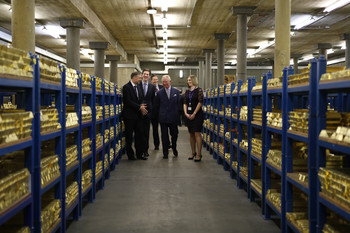
Value
Value is the total benefit that a customer can realize from a purchase. This is based on customer needs, preferences and perceptions. It is unique to each individual customer.Price
Price is set by supply and demand in a market. Alternatively, it is set by the pricing strategy of a firm.Value ≥ Price
Generally speaking, value is greater than or equal to price. This is because a customer has no incentive to buy something if its price is higher than its value. A firm that sets prices higher than value will have poor sales volumes.Value Determination
The primary factors that determine value are customer needs, preferences, brand recognition and brand image. Customers value things by how much they need them and prefer them. They also tend to value things based on reputation, as represented by a brand. For example, a customer may value a brand of coffee they perceive as a luxury higher than a brand of coffee they perceive as poor quality.Price Determination
Price is largely based on supply and demand. Demand is based on the value of products and services to customers. Supply is based on competition in a market. In a perfect market, prices for commodities are set by a market price where supply equals demand. Firms can rise above this market price by offering high value products and services that aren't viewed as commodities.Example #1
The value of drinking water to a thirsty person is extremely high as they require it for survival. However, the price may be quite low if there is an adequate supply in the area. After a person obtains enough water, the value of more water to the person drops as they no longer have need.Example #2
A video game enthusiast values games by the number of hours of entertainment it brings them. A game they anticipate as being hundreds of hours of fun, has a high value. A game they perceive as boring after several hours has low value to them. Based on this, a video game enthusiast purchases a full price game based on its reputation for being many hours of fun. If their expectations of the game are fulfilled, they will consider it a good value and write a positive review. If their expectations aren't met, they will consider it a poor value and write a negative review.Example #3
A firm values an industrial robot by how much output it can create on a production line. They estimate that a particular model will generate $1 million in net revenue. This is the value of the robot to the firm. If the price is significantly below the value, the firm may consider it as an investment in their annual budget.| Value vs Price | ||
Value | Price | |
Definition | The maximum price an individual or organization is willing to pay. | The actual price available on a market. |
Determined by | ||





























